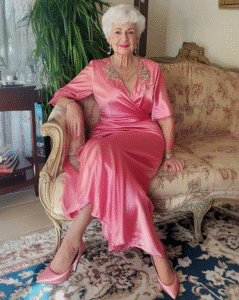Was I Wrong to Be Upset? My 70-Year-Old Mom Crossed a Line
I love my mom. Let’s start there. She’s 70, sharp as ever, and still carries herself like the force of nature she’s always been. But recently, something happened that made me feel like a child again—not in the sweet, nostalgic way, but in the frustrated, powerless way.
We were at my place for dinner—just me, my husband, our two kids, and her. Nothing fancy. I’d made lasagna, lit some candles, even had a playlist going in the background. I wanted a peaceful, happy evening. And then she said it.
“You know,” she started, slicing into her garlic bread, “I still don’t understand why you work full-time with kids this young. When I was your age, I stayed home. It’s what good mothers did.”
Just like that, the warmth drained from the room. My kids kept eating, my husband looked at me, and I froze. I knew she didn’t mean it maliciously—she’s said versions of this before—but this time, it landed differently. Maybe because I was already tired. Maybe because I’d had a rough day juggling meetings, sick kids, and racing home to cook that damn lasagna.
I snapped, gently but firmly. “Mom, I know you made different choices, but I don’t need you to imply mine are wrong.”
She blinked, surprised. “I’m just saying what worked for me.”
I nodded, holding back the lump rising in my throat. “I know. But saying I’m not a good mother because I work—that hurts.”
She went quiet. Changed the subject. But the sting lingered.
Later that night, after she left, I started second-guessing myself. Was I too sensitive? Was I wrong to be upset?
But here’s what I realized: it’s okay to be upset when someone, even someone you love deeply, questions your worth—especially as a parent. Her words weren’t just commentary on my job. They were commentary on my identity, on the way I love and care for my children.
Our mothers come from different times. Her sacrifices were real, and her values were shaped in a world that looked nothing like mine. But that doesn’t make her judgments fair—or unhurtful.
I ended up calling her the next day. I didn’t yell. I didn’t accuse. I just told her again, calmly, how her words made me feel. She was quiet for a moment. Then she said something unexpected.
“I didn’t realize it came out like that. I’m proud of you, you know. You’re doing things I never could.”
And just like that, something shifted.
No, I wasn’t wrong to be upset. Feelings don’t need permission to exist. But I also wasn’t wrong to believe that love could lead to understanding—even across generational divides.
